SUMMARY
This is AI generated summarization, which may have errors. For context, always refer to the full article.
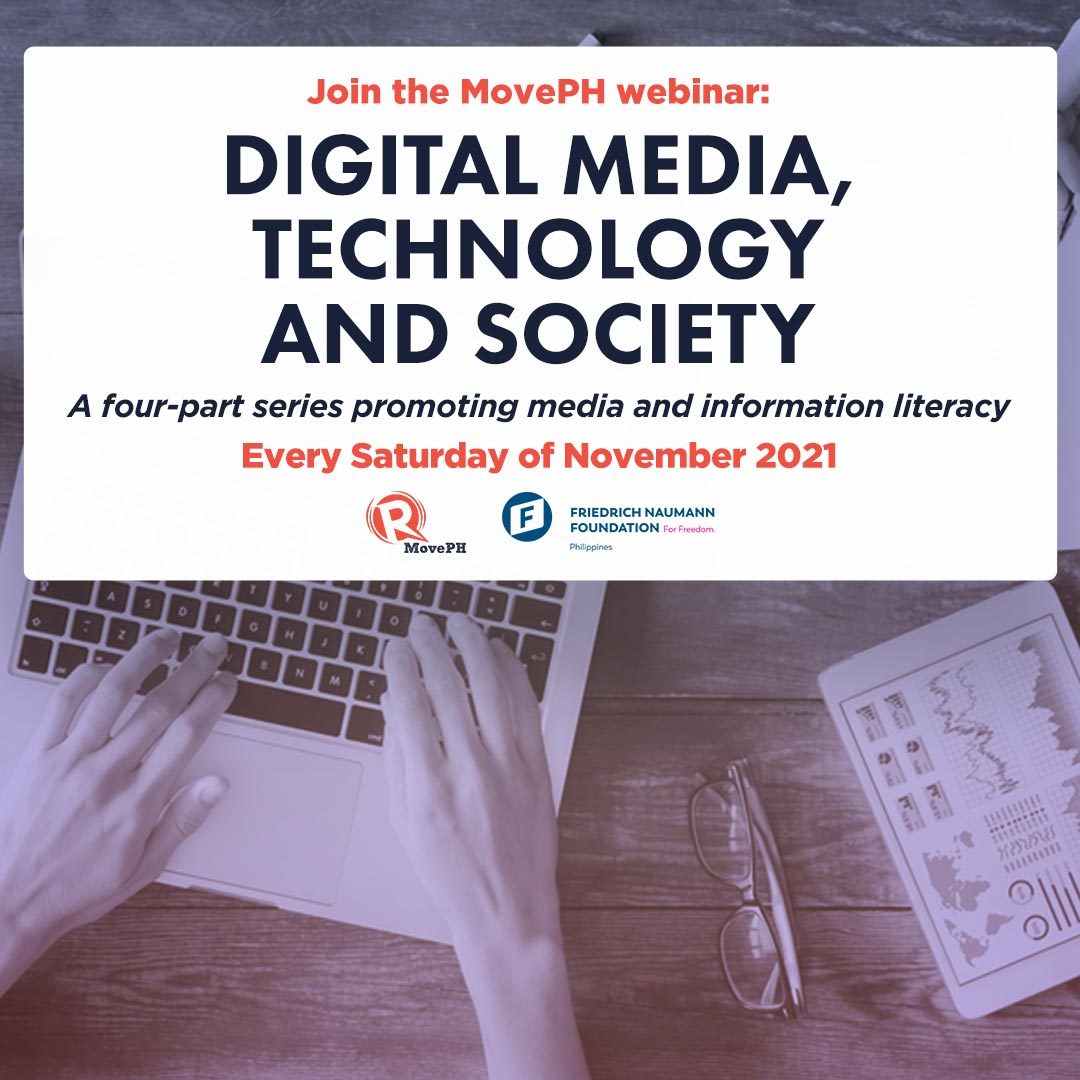
In an online landscape saturated with disinformation and with the upcoming Philippine elections this 2022, how can we cultivate a voting population that is media- and information-literate?
With the coronavirus pandemic scaling up digital media use, and with the continuous spread of online disinformation, dealing with misinformation requires more than just being able to spot suspicious claims.
Not too long ago, we witnessed how social media can be used for social good. The power of digital media-fueled participatory journalism strengthened civic engagement and public discourse. This is true in times of emergencies and disasters where we see people joining hands to build communities of action that are responsive to the needs of others.
While this is still evident today, the same social media tools have been weaponized to mislead the public, sow an online culture that thrives on hate, create echo chambers, and polarize a nation.
Moreover, the upcoming elections have made the role of social media much more evident in the prevalence of disinformation – with propaganda and campaign strategies popping up even before the campaign period officially starts.
Educating the public to think critically about the media they navigate and the information they consume will create massive impacts in the 2022 elections. According to the United Nations Educational, Scientific, and Cultural Organization (UNESCO), the definition of media literacy is to allow individuals to become engaged citizens and responsible decision-makers.
Cultivating an active, informed, and involved voter population would require digital citizens who can think critically about media and information. Soon, the Filipinos will make one of the most influential decisions in keeping our democracy through electing public officials who will run the country for the next few years.
MovePH, the civic engagement arm of Rappler, is leading this webinar series, which aims to promote media and information literacy in the Philippines and promotes being media-savvy amidst all the disinformation under the Philippine Elections this 2022.
This is the second time that MovePH will be conducting a series of webinars on digital media, technology, and society. Last year, a four-part webinar series was also conducted to promote media and information literacy among Filipinos.
This year, MovePH partnered up with the following to bring you this four-part media and information literacy webinar series:
- Amateur Media Association of Philippine Scouts
- College of Communication, Polytechnic University of the Philippines
- College of Development Communication, University of the Philippines Los Baños
- Division of Humanities, College of Arts and Sciences, University of the Philippines Visayas
- De La Salle Philippines
- Holy Angel University
- University of the Philippines Mindanao
- University of Saint Louis – Tuguegarao
- Visayas State University
The sessions aim to also help participants have a more critical understanding of the evolution of journalism and the online environment in the Philippines including the potentials and problems it poses, the different kinds of risks online, and the emerging trends on how digital media is being used for manipulation.
Through these sessions, more Filipinos would also be able to become responsible voters by 2022 by becoming critical thinkers with the media they consume and elect leaders that would benefit the country in the long run.
Register to all or any of these sessions of the webinar series:
Digital media landscape: Power, potential, and harm
Saturday, November 6, at 1 pm
The session will tackle the online landscape in the country, the reality that social media users are faced with, and the importance of journalism in the digital age.
Rappler CEO and Nobel Peace Prize laureate Maria Ressa will be the speaker of the first session.
Digital hygiene: How to manage online risks in the age of disinformation
Saturday, November 13, 2021, at 1 pm
For this webinar session, a discussion on digital security and data privacy will be tackled. Participants will also learn about basic digital hygiene on how to manage and deal with online risks.
Media and democracy in crisis: How to be a responsible digital citizen
Saturday, November 20, at 1 pm
This webinar session will focus on media and democracy in crisis, specifically on how Filipinos can be responsible digital citizens.
There will be a panel discussion with Jonathan de Santos, chairperson of the National Union of Journalists; Yvonne Chua, associate professor of journalism at the University of the Philippines Diliman; and John Nery, convener of the Consortium of Disinformation and Democracy. This will be moderated by Rappler researcher and writer Vernise Tantuco.
Participants will learn more about the role of media and digital media in democracy, citizen rights and responsibilities on social media, and the digital media’s impact on democratic discourse in relation to the 2022 elections.
Fighting infodemic: Disinformation, fact-checking, and the 2022 elections
Saturday, November 27, at 6 pm
This webinar session will focus on training participants to spot election-related disinformation online and combat it.
Gilberto Scofield Jr, marketing and relationships director for Brazil’s premier fact-checking agency Lupa, will tackle disinformation, fact-checking, and the 2022 elections.
Rappler researcher and writer Vernise Tantuco will discuss the fact-checking methodology.
– Rappler.com
Add a comment
How does this make you feel?
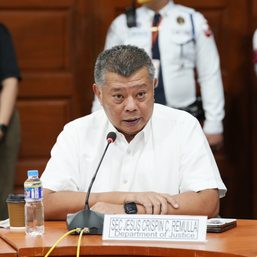
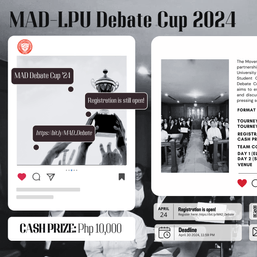



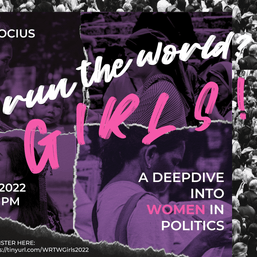
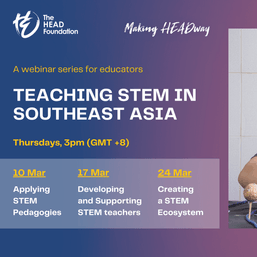

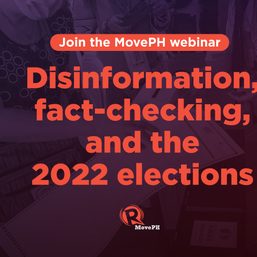
![[WATCH] #PHVote dialogues: Your checklist for the 2022 elections](https://www.rappler.com/tachyon/2021/10/PHVote-dialogue-sq-1.jpeg?resize=257%2C257&crop_strategy=attention)
There are no comments yet. Add your comment to start the conversation.